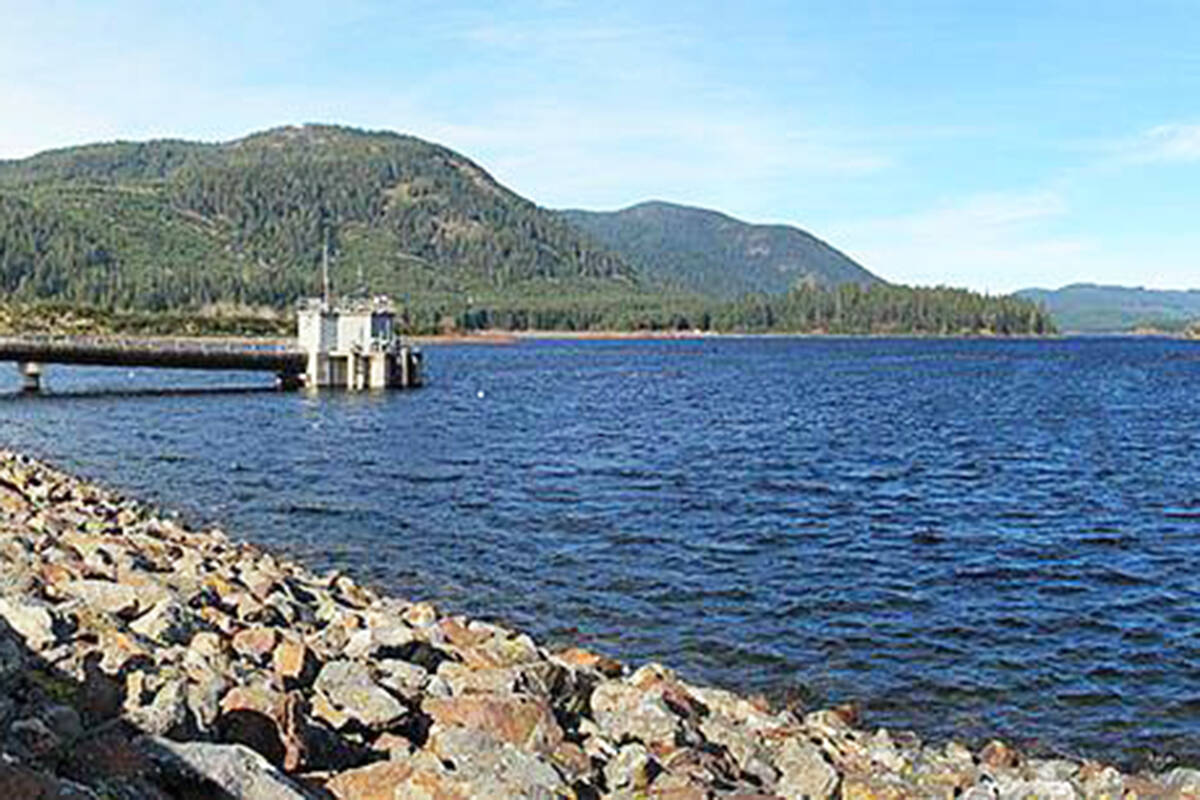A new water filtration plant is the big-ticket item in a $2 billion plan to secure the region’s water well into the future.
According to the Regional Water Supply 2022 Master Plan released June 9, the Capital Regional District is proposing to spend $2 billion on an infrastructure program over the next 30 years to improve the water supply and transmission system, and add redundancy to critical components to address hazards and risks.
A key component of the plan is the Goldstream water filtration plant. With an estimated cost of $1.07 billion, it would provide a single direct filtration plant to protect the regional water supply from potential raw water quality fluctuations due to climate change, forest fires, and the eventual integration of water from the Leech and Goldstream water supply areas.
The new filtration plant, projected for completion by 2037, would be located upstream from the Goldstream disinfection facility. The work includes a pump station, clearwell, balancing tank and the decommissioning of the Japan Gulch Dam and Reservoir.
Langford Coun. Lillian Szpak, chair of the CRD’s water board, said the master plan takes a forward-looking approach to deal with water.
“It will improve the supply and address hazards and risks, especially during climate emergencies and the impact climate change has on our watershed,” Szpak said. “The 21 projects involved in the proposal will create a reliable, resilient system that will serve us for many years to come.”
According to population projections, additional water will be needed by 2045, Szpak said.
“We purchased the Leech River catchment area in 2005 in preparation for that increase.”
The cost of the projects outlined in the master plan would be obtained through grants and water rates, Szpak said.
Other proposals include an east-west connector transmission main to connect the proposed filtration plant with the Juan de Fuca Water Distribution Service at an estimated cost of $77.64 million and a completion date of 2037.
The Smith Hill tank and pump station, estimated at $41.75 million and a completion date of 2039, would include a storage tank and associated pump station at the existing, decommissioned Smith Hill site. Benefits would include emergency storage, balancing of instantaneous and peak demand, reduction of the capacity required at treatment plants and the risk of transient pressure surges, head losses and deferral of a transmission main hydraulic upgrade.
A Goldstream reservoir connector, including a stage one balancing tank to protect water quality of the secondary water supply during emergencies, is pegged at $89.82 million, with an estimated completion date of 2033.
The Jack Lake raw water transmission main would provide a piped connection between the existing head tank and Goldstream Treatment Plant to provide redundancy to the Kappor Tunnel for backup or emergency purposes and increased raw water transmission capacity. It is estimated at 284.96 million, with completion slated for 2039.
Leech River diversion and Sooke Lake Saddle Dam hydraulic upgrades flow in at close to $242 million, with a completion date estimated in 2045.
Treated water transmission main upgrades, which include a variety of renewal and capacity-related upgrades throughout the regional water supply, are aligned into a $ a $10 million a year recurring annual program between 2027 and 2050 at a total estimated cost of $295.42 million.
For a detailed look at the plan or to provide comment, please go online to visit getinvolved.crd.bc.ca/2022-regional-water-supply-master-plan.
news@sookenewsmirror.com
Like us on Facebook and follow us on Twitter

